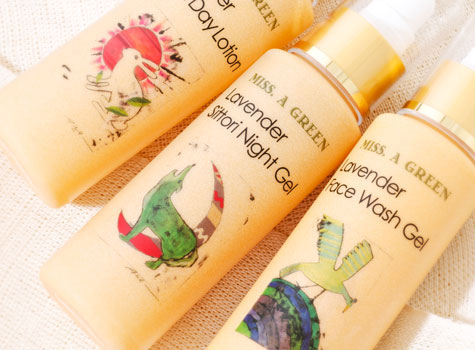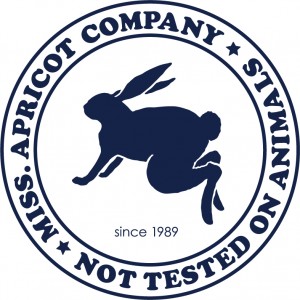Facing Problems with Organic
“To brighten up your skin, use sake lees.” “If it’s cold, put ginger in your food.” Those are the traditions Japanese inherited from years ago. Japanese people had practiced the life of organic without even realizing what organic is. The word “Organic” is becoming popular in Japan but its definition is still quite vague. Japanese market is filled with cheap products (cosmetics, crops, etc…) made with tons of harmful chemicals. As people become more aware of this, organic products are driving attention.
You may have the image of celebrities or highly health conscious people buying those organic products too selectively. Kanae Matsubara, the CEO of an organic cosmetic enterprise “Miss Apricot”, however, has a different view. She says, “You shouldn’t be too strict or extremely selective. Choose your products based on your sense.”
In 1988, Miss Apricot was found as an organic cosmetic enterprise with a brief that animal experiment should be stopped. As a symbol of the brief, they put an illustration of rabbits because rabbits are often used in animal experiments. This means their products not only benefit health but also help save animals.
Matsubara points out that there are still many obstacles on the way of raising popularity of organic products. One of those obstacles is Japanese law.
Others claim that standard on organic farm is vague. The owner of organic liquor shop “Yuasa” says, “Building relationship with farmers is very important for us. Yuki JAS standard is not saved enough to distinguish what is healthy and what is not so I often go to the seminars or visit farms.” He has recently seen the change in his clientele. He also says that the customers’ age range differs compared with the past time he didn’t sell the organic products. You can see the light of hope here in the retailing business.
It’s not easy to completely remove toxic chemicals from those products in the market. But through using more organic products, we could be friendlier to nature, animals, and ourselves in the near future.
Written by Aimi Takanaga, Nozomi Watanuma
Edited by Fumina Kayano.
Postscript
It was truly a great experience for me. I went to an organic liquor store which I had wanted to go for long time for an interview and heard lots of interesting stories. I think I would never get the chance to hear those stories if it were not for the reason like this. Thank you so much to those of you who worked with me throughout the term and those who is reading this right now.
Nozomi Watanuma
The experience to write this article made me think about surface and essence. For instance, fast food makes people possible to buy it cheaply, and eat quickly. This seems attractive on the surface, but is it really good thing to our health? The word, ”Organic” which means such as ”farming” and ”essential”, can reform such a thing. I do wish organic would be more common in Japan afterwards.
Aimi Takanaga




